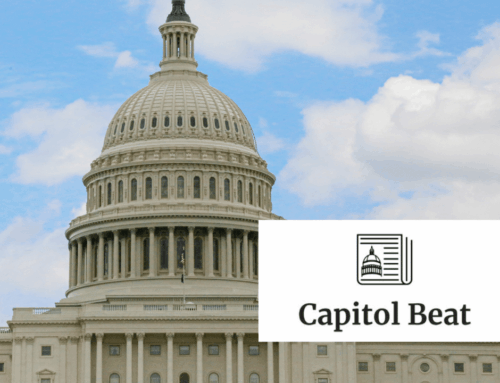This tax season who you gonna call? The National Taxpayer Advocate! Except you’d get voice mail. Nina Olson, who served as the National Taxpayer Advocate for 18 years, stepped down at the end of July last year. Haven’t heard of the job? Thousands of your fellow taxpayers have.
The National Taxpayer Advocate works at the IRS, leading the independent Taxpayer Advocate Service (TAS). This part of the IRS serves as ombudsman of sorts and has four main functions: to help taxpayers resolve problems with the IRS, identify areas of IRS’ work that are causing problems, propose administrative changes to fix problems, and identify legislative changes that could help alleviate problems. As the IRS attempts to apply the labyrinthine tax code and process more than 250 million individual returns, having a problem-solver on the side of taxpayers is crucial.
The TAS’s most public role is taking on cases on behalf of individual taxpayers. In fiscal year (FY) 2019, they opened more than 240,000 cases and resolved another 26,000 issues over the phone. Most involve helping people negotiate IRS channels to avoid actions that could have irreparable or long-term adverse impacts, such as wage garnishment that leads to eviction. In addition, the TAS manages a system of more than 130 Low Income Taxpayer Clinics in 46 states, in which volunteers logged 57,000 hours in FY 2019.
During her tenure, Olson was by all accounts a fierce champion for low income taxpayers and equally bold in her position’s policy role – pushing the IRS to do better. As you can imagine, there’s a lot of room for improvement. In its two-volume, 512 page-Annual Report to Congress published this month, the TAS identified the 10 most serious problems facing the IRS and provided 58 recommended legislative actions to help taxpayers.
In recent years, the TAS has focused on trying to get the IRS to improve customer service at the most basic level – actually picking up the phone. In FY 2019, the IRS received just shy of 100 million calls. A live person picked up only 29 percent of them. It was worse for taxpayers with a balance due calling to set up a payment arrangement. Only one in four of those calls got answered by a non-robot, and only after waiting an average of 45 minutes. That’s for people trying to pay!
Phone service is a telling measure of basic functioning, but the problem goes much deeper. In its most recent report to Congress, the TAS said that to truly rectify its customer service – the No. 1 “Most Serious Problem” – the IRS has to shift its whole culture, down to the people it hires. Getting IRS employees not to intentionally limit interactions with taxpayers or demonize taxpayers with unpaid balances would certainly help, but like most problems in Washington, it also comes down to money.
While government spending soared elsewhere, from FY2010 to FY2019, the IRS budget was cut by more than 20 percent. The reason why is no mystery – the taxman is an easy punching bag and has few defenders. But this insufficient funding – identified as IRS’ No. 3 “Most Serious Problem” – is bad for taxpayers. Just getting enough to scrape by each tax season results in no investment in the massive infrastructure it takes to collect taxes. The information technology IRS uses (No. 2 most serious problem) is from the 1960s. This creates security vulnerabilities, as we’ve seen in recent years, and prevents the agency from improving its customer service.
But if for no other reason, adequately funding the IRS is important because doing so actually brings in more money. Because of budget cuts, IRS enforcement has weakened – the audit rate dropped by more than 40 percent from 2010 to 2017. Woohoo! Fewer tax audits! Except not really. The vast majority of taxes are paid timely and but a fair tax system is one that cracks down on bad actors, that doesn’t let those with clever lawyers and accountants skirt their bill. Audits and other direct enforcement actions bring in revenue that would otherwise escape the system. The TAS also notes that money spent on other services, like mailing helpful information to certain taxpayers is also much more cost-effective than trying to collect when someone mis-files.
Bottom line, beating up on the IRS by cutting funding for enforcement and other services increases the deficit. Which is why the Congressional Budget Office estimated that spending $20 billion more on the IRS over 10 years would bring in an additional $55 billion in revenue.
The National Taxpayer Advocate has an important role to fill, both to help and serve individual taxpayers and to shine a spotlight on ways to improve the IRS. There are a lot of vacancies in this administration. Confirming a new National Taxpayer Advocate should not be a partisan slugfest, it should just get done.










